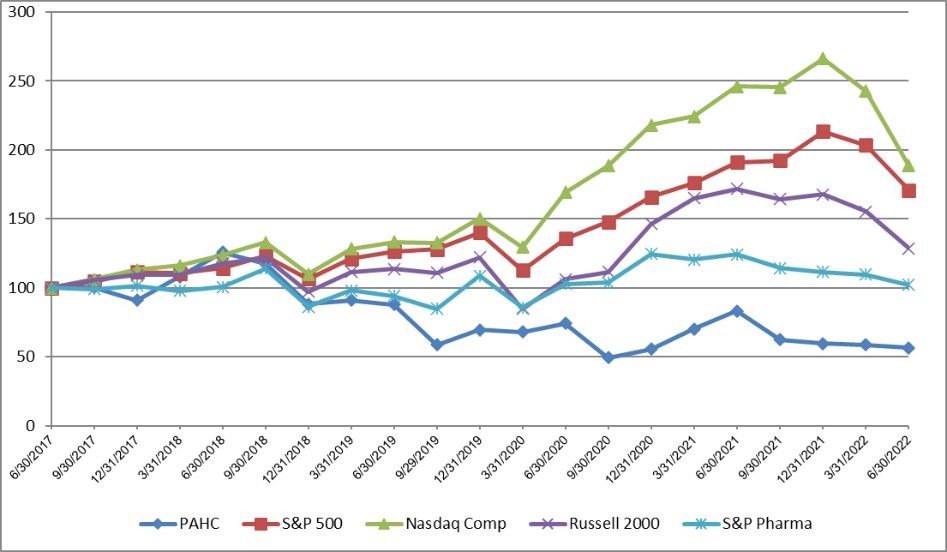Our operations, properties and subsidiaries are subject to a wide variety of complex and stringent federal, state, local and foreign environmental laws and regulations.
We are subject to environmental, health and safety laws and regulations, including those governing pollution; protection of the environment; the use, management and release of hazardous materials, substances and wastes; air emissions; greenhouse gas emissions; water use, supply and discharges; the investigation and remediation of contamination; the manufacture, distribution and sale of regulated materials, including pesticides; the importing, exporting and transportation of products; and the health and safety of our employees and the public (collectively, “Environmental Laws”). See “Business — Environmental, Health and Safety.”
Pursuant to Environmental Laws, certain of our subsidiaries are required to obtain and maintain numerous governmental permits, licenses, registrations, authorizations and approvals, including “RCRA Part B” hazardous waste permits, to conduct various aspects of their operations (collectively “Environmental Permits”), any of which may be subject to suspension, revocation, modification, termination or denial under certain circumstances or which may not be renewed upon their expiration for various reasons, including noncompliance. See “Business — Environmental, Health and Safety.” These Environmental Permits can be difficult, costly and time consuming to obtain and may contain conditions that limit our operations. Additionally, any failure to obtain and maintain such Environmental Permits could restrict or otherwise prohibit certain aspects of our operations, which could have a material adverse effect on our business, financial condition and results of operations.
We have expended, and may be required to expend in the future, substantial funds for compliance with Environmental Laws. As recyclers of hazardous metal-containing chemical wastes, certain of our subsidiaries have been, and are likely to be, the focus of extensive compliance reviews by environmental regulatory authorities under Environmental Laws, including those relating to the generation, transportation, treatment, storage and disposal of solid and hazardous wastes under the RCRA. In the past, some of our subsidiaries have paid fines and entered into consent orders to address alleged environmental violations. See “Business — Environmental, Health and Safety.” We cannot assure you that our operations or activities or those of certain of our subsidiaries, including with respect to compliance with Environmental Laws, will not result in civil or criminal enforcement actions or private actions, regulatory or judicial orders enjoining or curtailing operations or requiring corrective measures, installation of pollution control equipment or remedial measures or costs, revocation of required Environmental Permits, or fines, penalties or damages, which could have a material adverse effect on our business, financial condition and results of operations. In addition, we cannot predict the extent to which Environmental Laws, and the interpretation or enforcement thereof, may change or become more stringent in the future, each of which may affect the market for our products or give rise to additional capital expenditures, compliance costs or liabilities that could be material.
Our operations or products may impact the environment or cause or contribute to contamination or exposure to hazardous substances.
Given the nature of our current and former operations, particularly at our chemical manufacturing sites, we have incurred, are currently incurring and may in the future incur liabilities under CERCLA, or under other federal, state, local and foreign Environmental Laws related to releases of or contamination by hazardous substances, with respect to our current or former sites, adjacent or nearby third-party sites, or offsite disposal locations. See “Business — Environmental, Health and Safety.” Certain Environmental Laws, including CERCLA, can impose strict, joint, several and retroactive liability for the cost of investigation and cleanup of contaminated sites on owners and operators of such sites, as well as on persons who dispose of or arrange for disposal of hazardous substances at such sites. Accordingly, we could incur liability, whether as a result of government enforcement or private claims, for known or unknown liabilities at, or caused by migration from or hazardous waste transported from, any of our current or former facilities or properties, including those owned or operated by predecessors or third parties. See “Business — Environmental, Health and Safety.” Such liability could have a material adverse effect on our business, financial condition and results of operations.
The nature of our current and former operations also exposes us to the risk of claims under Environmental Laws. We could be subject to claims by environmental regulatory authorities, individuals and other third parties seeking damages for alleged personal injury, property damage and damages to natural resources resulting from hazardous substance contamination or human exposure caused by our operations, facilities or products, and there can be no assurance that material costs and liabilities will not be incurred in connection with any such claims. Our insurance may not be sufficient to cover any of these exposures, product, injury or damage claims.
 .
.